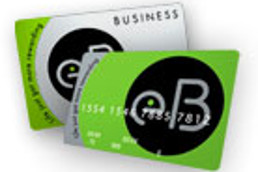 Q: What is the shar`ee ruling on eBucks points earned through the bank?
Q: What is the shar`ee ruling on eBucks points earned through the bank?

A: Before addressing this pertinent issue, it is of paramount importance for us to understand the Islamic way of earning wealth as opposed to the way wealth is earned through the riba based systems of the bank. We hope that through a comparative study between the two and through closely examining how banks operate, one will be in a better position to judge the status of the wealth and benefits acquired through the bank in the light of Shari’ah.
In Islam the permissible and legitimate way of earning a halaal livelihood is through Islamic trade and commerce (dealings sanctioned by Shariah). Allah Ta’ala states:
وأحل الله البيع وحرم الربوا
Allah Ta’ala has permitted trade (as a means of livelihood) and condemned interest dealings
In this verse of the Holy Quraan, Allah Ta’ala draws our attention towards the underlying principle that governs the earning of halaal and haraam. Allah Ta’ala has sanctioned the profit earned through a business transaction as halaal and declared the wealth earned through riba (interest dealings) as haraam. Halaal wealth in the eyes of Shariah is that wealth which is acquired through effecting a business transaction. The transaction is effected between the purchaser and the seller through a proposal and acceptance. The outcome is that both parties acquire ownership of the respective commodities by means of the sale. Thus in the Islamic way of earning wealth, the commodity has been used as the essential means of acquiring profit. Apart from this we observe that in a business transaction both parties gain monetarily and are satisfied mentally. Each party is given an equal chance to deal freely and to profit according to his personal choice.
On the other hand, opposed to the halaal system of acquiring wealth (which is effected through a business transaction) is wealth acquired through riba (interest dealings). In an interest deal, one party gains while the other stands to lose. The transaction is effected by one party giving a loan to the other with the precondition that at the time of repaying the loan, the latter pays extra, either in cash or kind. This inhumane system was in vogue in the pre-Islamic era. However with the advent of Islam, all inhumane and barbaric practices and customs were abolished. It was in this regard that Allah Ta’ala revealed the following verse of the Holy Quraan.
يَأَيُّهَا الَّذِينَ آمَنُوا لَا تَأْكُلُوا الرِّبَوا أَضْعَافًا مُّضَعَفَةً وَاتَّقُوا اللَّـهَ لَعَلَّكُمْ تُفْلِحُونَ ﴿آل عمران: ١٣٠﴾
O you who believe, do not consume interest multiplied manifold and fear Allah so that you may be successful.
Now consider the riba system of conventional banks and other such institutions in contrast to the Islamic system. One will find that the riba system diametrically opposes the principles of Islam. The conventional banks operate through accepting wealth from the people and loaning it to others on interest. Hence, the primary medium utilized by the conventional banks in reaching the goal is not a commodity which is sold for profit, as is the case in the Islamic system, rather it is dealing in money in exchange of money with interest.
Income of the bank
The bank has many sources of income. Apart from the deposits of depositors, the income of the bank can be essentially distributed into three types:
- Interest that is generated through financing, such as home loans, vehicle financing, import/export financing, asset (equipment) financing, etc.
- Companies wherein the bank invests on interest.
- Income acquired through bank charges [1].
From all these various sources of income, the main sources of income of banks are the first and second source i.e. interest that is generated through financing activities and interest bearing investments of the bank. Hence, the major income of the bank is earned from haraam. As far as depositing one’s money in the bank is concerned the ulama explain that if one does so with the intention of gaining the returns the bank distributes among its depositors it will be totally impermissible. However if one deposits the money in the bank with the intention of safekeeping and making payments through the bank without benefitting in any way from the bank’s interest it will be permissible. The reason for the ulama allowing one to keep one’s money in the bank is that in current times it is not possible for businesses to run without dealing with the banks (securing one’s money in the bank, making payments etc.). Hence, permission has been granted for one to deal with the banks to the point of need.
eBucks – Permissible or not?
We have understood from the above that the bank is a riba based institute. Their main aim and goal is to promote interest and usury in the world through providing interest bearing loans to the public and distributing returns to its depositors at a fixed interest rate.
On account of the fact that the banks entire operation revolves around riba, the Ulama’ are unanimous that it is impermissible for one to accept the riba (interest amount) distributed by the bank to its clients (i.e. depositors) as this is earning money through money loaned to the bank. Up to this point there is no contention among the Ulama’. Instead everybody agrees that the interest amount is being given in exchange of the money one has loaned to the bank in the form of deposits. However, the eBucks points being given by banks has currently become a point of contention among the Ulama’.
In order to ascertain the position of eBucks in Shari’ah, it is necessary that the issue of interest be fully understood from every angle.
Interest is completely prohibited in the Qur’an and Sunnah. Allah Ta’ala has declared war upon those who consume interest [2]. Interest is so greatly accursed that Rasulullah (Sallallahu Alayhi Wasallam) has invoked the curse of Allah Ta’ala upon the one who takes interest, the one who gives it as well as the scribes and witnesses of the transaction [3]. The severity of interest is so extreme that Rasulullah (Sallallahu Alayhi Wasallam) has described it as worse than fornicating thirty six times [4]. Thus interest is no light matter. It is among the worst crimes and the most severe sins. The one who consumes interest is such a serious criminal that Allah Ta’ala Himself declares war against him. The statement of Hadhrat Umar (Radhiyallahu anhu) is explicit in this regard:
دعو الربا والريبة . رواه ابن ماجة
“Forsake interest as well as what has the whiff of interest in it.”
Due to the severity of the sin of interest, Rasulullah (Sallallahu Alayhi Wasallam) has forbidden taking any gift or benefit from the debtor as this too constitutes interest. Hazrat Anas (Radiyallahu Anhu) reports that Rasulullah (Sallallahu Alayhi Wasallam) said:
وعن أنس عن النبي صلى الله عليه وسلم قال: «إذا أقرض الرجل الرجل فلا يأخذ هدية» . رواه البخاري في تاريخه هكذا في المنتقى
“If any person has given someone a loan, he should not accept any gift from the debtor.”
Another narration warns against taking any benefit in more detail. Rasulullah (Sallallahu Alayhi Wasallam) is reported to have said:
وعن أنس قال: قال رسول الله صلى الله عليه وسلم: «إذا أقرض أحدكم قرضا فأهدي إليه أو حمله على الدابة فلا يركبه ولا يقبلها إلا أن يكون جرى بينه وبينه قبل ذلك» . رواه ابن ماجه والبيهقي في شعب الإيمان
“If you have given a loan to some person and he (the debtor) wishes to give you a gift, or wishes to offer you a lift on his conveyance (due to being indebted to you), then do not accept his gift or his lift, except if the exchanging of gifts and giving lifts was a common practice between them even before giving him the loan”
Due to the emphasis on not accepting any benefit from the debtor, the Sahaabah (Radiyallahu Anhum) also exercised extreme caution in this regard. Hazrat Abu Burdah (Radiyallahu Anhu) relates: “When I came to Madinah, I met Abdullah bin Salaam (Radiyallahu Anhu). He said to me: You are living in a country (Syria) where dealing in interest is common. Therefore if anyone who owes you money gives you a load of straw, wheat or grain as a gift (due to being indebted to you) then do not accept his gift, for certainly it is interest.” [5]
The crux of the above discussion is that every form of interest is extremely deplorable and detestable in the sight of Shari’ah and hence has to be totally shunned. In order to fully comply with this extremely important injunction, it is imperative that the definition of interest be understood clearly.
The author of Hidaayah as well as other Hanafi jurists have defined interest in the following words:
لأن الربا هو الفضل المستحق لأحد المتعاقدين في المعاوضة الخالي عن عوض شرط فيه
Interest is that excess devoid of any compensation which either of the transacting parties is entitled to due to it being a pre-condition in that transaction. [6]
For instance Zaid has given a loan of R1000 to Bakr. They have mutually agreed that Bakr will pay back R1000 after one month and he will also allow Zaid to use his car for one day. The R1000 which will be paid back is in lieu of the R1000 received as a loan. The benefit of using Bakr’s car is devoid of any compensation. However, due to it being a pre-condition, it is interest and thus haraam. Likewise, if the pre-condition was that together with the loan of R1000, Zaid will also allow Bakr the use of his (Zaid’s) car for one day, this too will be interest. While this normally may be a rare situation, that the creditor is giving an extra benefit to the debtor, it nevertheless falls within the purview of the definition of interest, which clearly includes the excess which is devoid of any compensation which either of the transacting parties is entitled to due to it being a pre-condition.
Let us now examine the position of eBucks in the light of Shari’ah.
Firstly, what are eBucks? eBucks points are in reality a promise to award gifts to registered eBucks members in accordance to the number of points accumulated.
eBucks points are awarded either by the bank directly, when one uses one’s credit card to pay for any purchase, or are awarded by affiliated eBucks partner stores when goods are purchased from them. One can redeem the accumulated points by purchasing goods from that store in lieu of the points. Thus these points are actually maal (wealth) which can be used to make purchases.
In the case where the bank is directly awarding the eBucks, there are two possible situations: Either the credit card holder has money in his account or he does not have anything in his account.
In the case where one has money in his account, this money is actually a loan to the bank. Thus the eBucks points are a benefit devoid of compensation being received from the debtor (the bank). Since one signs up for eBucks, one becomes entitled to this benefit. Thus this benefit falls under the aforementioned definition of interest. Furthermore, it could be said that the benefit that he is receiving is on account of the loan that he has forwarded to the bank. In this regard the hadeeth is explicit:
عن فضالة بن عبيد صاحب النبي صلى الله عليه وسلم أنه قال: ” كل قرض جر منفعة فهو وجه من وجوه الربا [7]
Hadhrat Fadhaalah bin Ubaid (radhiyallahu anhu) said: “Every loan that becomes the means of extracting benefit (gifts, etc.) from the one the money was loaned to is a form of interest.”
The second case is where one does not have any money in the account. In this case the bank is loaning the money to the card holder. Due to being a registered eBucks member, together with receiving the loan from the bank, one also becomes entitled to the eBucks benefit. The aforementioned definition of riba clearly states that interest is the pre-conditional benefit devoid of compensation which either of the transacting parties receives. In this case the creditor (the bank) has given an additional pre-conditional benefit to the debtor. Hence this too is interest.
Hence, it is clear from the above discussion that receiving eBucks via the bank in either case, whether one has money in his account or not is impermissible due to this type of transaction of the bank falling within the ambit of the definition of riba. Just as the interest the bank gives is detested in the sight of Shariah, similarly will be the ruling in regard to the eBucks received through the bank or any other benefit or gift.
Accordingly the above discussion also alleviates the need to delve into issues of whether the major portion of the bank’s wealth is acquired through interest and other haraam earnings or whether it is the deposits of people. In either case it makes no difference to the shar`ee ruling, since the impermissibility is based on the eBucks being awarded by the bank falling within the purview of the definition of interest.
In the case where the eBucks are awarded by a participating store for goods purchased, this will be permissible. There is no loan involved in this situation. The eBucks member purchased goods to the value of R1000. The store awarded him points which entitles him to goods to the value of R10. The sum total of this is that the store has sold him all the items he purchased plus the awarded item for R1000. This is the same as the promise of “Buy one, get one free.” The reality is that one has bought both items for the price he paid. This is deduced from the principle of the fuqaha “العبرة للمعاني دون الألفاظ” (The shar`ee ruling is based on the outcome and not merely the words.)
The operation of the bank
The entire operation of conventional banks revolves around riba. These banks go all out to promote the business of interest and usury around the world. Hence, under some pretext or the other in the effort to fulfil this goal they create various types of schemes and afford incentives to the public in order to draw people into the accursed web of interest and usury. We should understand that when this is their agenda and the catalyst behind all these incentives is to rope people into haraam and sin, how can a Muslim get involved in this and aid them in their mission! The Ulama’ explain that the contract wherein the clause is attached of paying interest in the situation of late payment is an impermissible clause. How many people eventually fall into the accursed web of riba due to not being able to pay off the loan within its allocated time. Hence the bank presents these benefits to the public so that they eventually fall into riba.
Nabi (Sallallahu Alayhi Wasallam) foretold the coming of such times where people will be disconcerned about the avenues of their earning whether from halaal or haraam:
عن أبي هريرة رضي الله عنه عن النبي صلى الله عليه وسلم قال يأتي على الناس زمان لا يبالي المرء ما أخذ منه أمن الحلال أم من الحرام (صحيح البخاري # 2059)
“A time will dawn upon the people (before qiyaamah) when no one will be concerned about his income, whether it is from a halaal source or a haraam source.”
We make dua that Allah Ta’ala guides the Ummah towards earning halaal, emulating the Sunnah of Rasulullah (Sallallahu Alayhi Wasallam) and refraining from any involvement in riba (interest).
[1] Income acquired through bank charges:
- Management fees (to make your account)
- Statement fees
- SMS fees (sms sent to client to notify him of movments in the account)
- Deposit fees
- Withdrawal fees
- Point of sale fees (fees for using debit cards)
- Internet banking fees
- Cheque fees (fees for depositing cheques)
- Guaranteed cheques/bank cheques
- Credit card fees
- Loyalty fees (fees charged to join a loyalty programme)
- Forex fees
- Guarantor fees like L/C
- Commission on credit cards from merchants
[2] فَإِن لَم تَفعَلوا فَأذَنوا بِحَربٍ مِنَ اللَّـهِ وَرَسولِهِ وَإِن تُبتُم فَلَكُم رُءوسُ أَمولِكُم لا تَظلِمونَ وَلا تُظلَمونَ ﴿٢٧٩﴾ ﴿ البقرة ﴾
[3] عن جابر قال لعن رسول الله صلى الله عليه وسلم آكل الربا وموكله وكاتبه وشاهديه وقال هم سواء (صحيح مسلم # 1598)
[4] عن عبد الله بن حنظلة غسيل الملائكة قال قال رسول الله صلى الله عليه وسلم درهم ربا يأكله الرجل وهو يعلم أشد من ستة وثلاثين زنية ( مسند أحمد # 21957)
[5] وعن أبي بردة بن أبي موسى قال: قدمت المدينة فلقيت عبد الله بن سلا م فقال: إنك بأرض فيها الربا فاش إذا كان لك على رجل حق فأهدى إليك حمل تبن أو حمل شعير أو حبل قت فلا تأخذه فإنه ربا. رواه البخاري
[6] الهداية 3 / 78
الربا فضل خال عن عوض شرط لأحد المتعاقدين في المعاوضة (فتح باب العناية بشرح النقاية 2/355)
باب الربا هو لغة: مطلق الزيادة وشرعا (فضل) … (خال عن عوض) … (بمعيار شرعي) … (مشروط) ذلك الفضل (لأحد المتعاقدين) أي بائع أو مشتر … (في المعاوضة)
قال الشامي: (قوله أي بائع أو مشتر) أي مثلا فمثلهما المقرضان والراهنان قهستاني قال: ويدخل فيه ما إذا شرط الانتفاع بالرهن كالاستخدام والركوب والزراعة واللبس وشرب اللبن وأكل الثمر فإن الكل ربا حرام كما في الجواهر والنتف. (رد المحتار مع الدر المختار 5/168-170)
[7] ” كل قرض جر منفعة فهو وجه من وجوه الربا ” موقوف . السنن الكبرى للبيهقي
Answered by:
Checked & Approved:
Mufti Ebrahim Salejee (Isipingo Beach)
Source: Muftionline.co.za
 Ihyaaud Deen An Effort to Revive Deen in Totality
Ihyaaud Deen An Effort to Revive Deen in Totality



